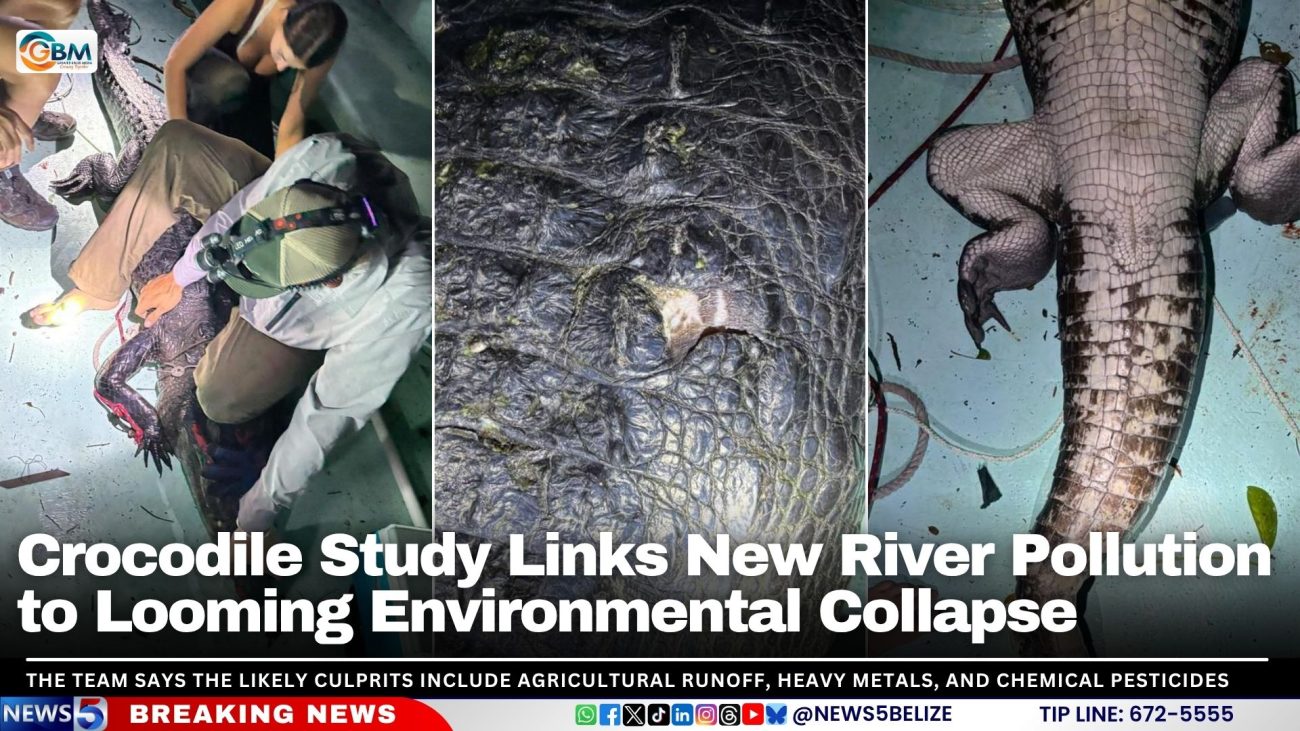Crocodile Study Links New River Pollution to Looming Environmental Collapse
Scientists investigating crocodile health in the New River Lagoon say the animals are showing alarming signs of decline linked to pollution. A team from Rio Bravo observed crocodiles suffering from emaciation, necrotic tissue, skin discolouration, fungal infections and acute damage.
“Some were unable to heal even minor wounds, clear signs of possible immune system dysfunction,” the Crocodile Research Coalition reported. Blood samples were collected to study immunological markers and determine the impact of waterborne pollutants.
The team says the likely culprits include agricultural runoff, heavy metals, and chemical pesticides such as Dichlorodiphenyltrichloroethane (DDT) and dichlorodiphenyldichloroethylene (DDE).
Researchers also found a reduction in phallus size in several crocodiles, which is the intromittent reproductive organ normally concealed within the cloaca and only everted during mating. According to the team, this finding suggests “endocrine disruption caused by long-term chemical exposure.”
As apex predators, crocodiles are considered key indicators of environmental health. “Their decline signals a broader environmental crisis,” the team warned. “This is an urgent issue that needs attention, not just for the sake of the crocodiles, but for the health of the entire watershed.”






Facebook Comments